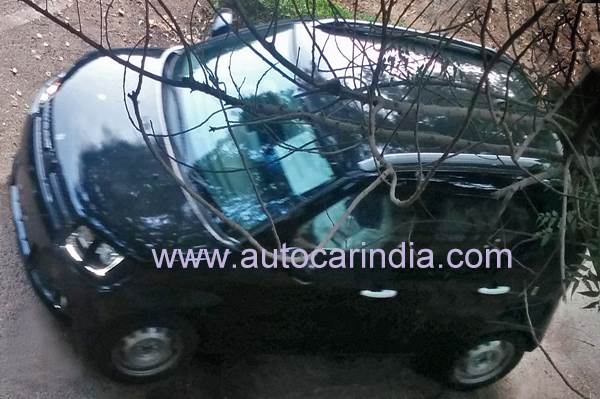Mahindra's fresh new KUV100 is currently the only compact crossover in its class. This allows the Indian utility vehicle maker to price and place it as it pleases, a distinct advantage when it comes to marketing the car. It won't enjoy the monopoly for long, however, as just over the horizon is the Ignis, Suzuki's compact crossover that shares its basic dimensions with the Mahindra. Maruti recently showcased the Ignis at Auto Expo 2016 and has announced that the model will be launched in India this year around the festive season.
The Ignis is a bit longer at 3,693mm to the KUV's 3,675mm and at 2,438mm, the Suzuki has a slightly longer wheelbase as well, but the Ignis isn't as tall as the KUV. And it isn't as radically styled either, which could give it a key advantage. This is because the slightly understated Ignis is also extremely attractive in its own right, even without the outlandish details.
What gets your attention first is the robust stance of the car and spot-on proportions. It has big wheel arches and what makes it look neater is that the mass of the car is contained within these four 'posts'. The other bit that draws your gaze is the neatly executed nose. The integrated headlight and grille combo are superbly designed and what add to the appeal are the oval LED daytime running lights. Technical sophistication is also high, the surface is almost Volkswagen-like in the way it is executed with its bold lines and smooth surfaces. An area of concern, however, appears to be the retro-looking rear that’s been designed to resemble some of Suzuki’s earlier rear-engined cars. Will it go down well with Indian customers who, as a rule, shy away from retro cars? Perhaps it will create a bit of nostalgia in the minds of Indian customers as well, the tail-lights and hatch also resemble the rear of the original 800 or SS80, somewhat.
Power is likely to be supplied by what is essentially a modified version of the 1.2-litre K series motor found on cars like the Swift and the Baleno. And later, there's also likely to be Maruti's first SHVS mild hybrid system on a petrol, that integrates regenerative braking, a lithium-ion storage battery and a small electric motor. The 74bhp DDiS 1.3-litre diesel is another option Maruti is working actively on and a dual-jet or twin injector version of Maruti's 1.2 K series petrol engine is also in the pipeline. Though the Ignis won't get an automated manual transmission like other Maruti cars of this size, it will get a smoother shifting and efficient CVT like the Baleno.
For a car that looks so compact, there’s plenty of room on the inside. The dash is nice and compact, the seats are space efficient and there's even sufficient legroom in the rear of the car; especially with the space created under the front seat. It helps that this car has a slightly higher WagonR-like stance that allows for comfortable seating. The styling on the inside is also impressive. There’s an all-new Suzuki steering wheel that looks considerably more upmarket than the current one that's always borrowed from the Swift, the two-tone dash seems made for India and the instrument panel is neatly designed too. The centre console even has a Merc A-class-like tablet and there’s an all-new neo-retro air-con controller; probably the coolest bit.
The Ignis will be the first car in India to be built on Suzuki's all-new compact car platform, a step down from the new Baleno. Like the latter, it features a new, more rigid floor for lower weight and greater stiffness. This will mean new levels of efficiency and comfort for owners. Suzuki is also likely to equip the Ignis with plenty of kit. Unlike its other compact SUV, the Brezza, that will be sold from regular dealerships, the Ignis is headed to the more premium Nexa outlets and that will mean a fully loaded version of the car.
While Maruti hasn't formally announced that the Ignis will be made in India, there's no denying that the compact crossover is perfectly suited to our needs and requirements. It looks attractive, has everything young Indian car buyers want from the interior and is initially likely to come with a combination of tried and tested engines and transmissions, and later on, with a raft of more efficient ones. Maruti, however, is likely to price it at a slight premium over Mahindra's KUV100. Prices are expected to start at around Rs 5.5 lakh for the base versions and work themselves up to around Rs 8 lakh for the top-of-the-line automatic. Yes, this will mean that Maruti, with the new Brezza about to be launched, will probably have two compact SUVs at around the same price point: but when has that stopped Maruti. Question is, which one will you go for?




Comments
Member Login
Personal Details
No comments yet. Be the first to comment.